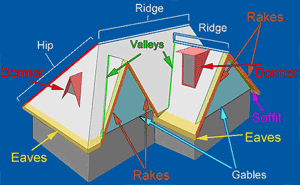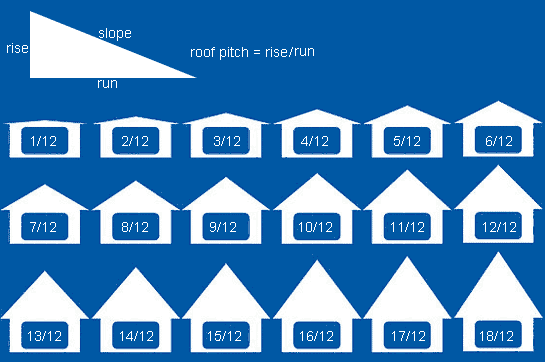Estimate Roofing Materials and Costs with Ease Using Our Roofing Calculator
Whether you’re planning a small roof repair or preparing for a full roof replacement, accurately estimating your roofing materials and costs is critical. The Roofing Calculator on BestCalculator.io is a user-friendly online tool designed to help homeowners, contractors, DIY enthusiasts, and students quickly determine the total area of a roof and estimate the number of shingles, tiles, or roofing sheets required—along with associated costs.
This calculator saves you time, eliminates guesswork, and helps avoid waste or shortages by delivering precise calculations tailored to your specific roof dimensions and pitch. Whether you’re managing a construction project or simply budgeting for future home maintenance, this tool simplifies the process and puts the numbers you need at your fingertips.
Roofing Calculator
or 1,200 square feet or 133.3 square yards.
To have 10% buffer would require 13 roof squares.
By United States standard, the roof will need:
40 bundles of composition shingles (each bundle will cover ~33 ft²)
13 rolls of roll roofing (~36 in × 36 ft for each roll)
4 rolls of #15 felt (~36 in × 144 ft for each roll)
7 rolls of #30 felt (~36 in × 72 ft for each roll)
Total Roof Area = Base Area × (1 + (Pitch / 12))
Example:
1200 sqft × (1 + (4 / 12)) = 1600 sqft
By United States standard, the roof will need:
10 bundles of composition shingles (each bundle will cover ~33 ft²)
4 rolls of roll roofing (~36 in × 36 ft for each roll)
1 rolls of #15 felt (~36 in × 144 ft for each roll)
2 rolls of #30 felt (~36 in × 72 ft for each roll)
Roofing ceramic tiles do not have a standard size. Consult contractors to determine the amount needed.
- Shingle Bundles = (Area × 1.1) / 33
- Roll Roofing = (Area × 1.1) / 108
- #15 Felt = (Area × 1.1) / 432
- #30 Felt = (Area × 1.1) / 216
Example:
For 300 sqft: (300 × 1.1) / 33 ≈ 10 bundles
What Does the Roofing Calculator Do?
The Roofing Calculator simplifies the process of:
Calculating total roof surface area based on base dimensions and pitch
Estimating the number of roofing material units (e.g., bundles, sheets, panels)
Adding a waste factor for cuts, overlaps, or complex shapes
Determining total material and optional labor costs
You can select from Imperial (feet/inches) or Metric (meters) units, making it useful for users worldwide. It’s designed to help you prepare for home improvement, repair, or construction projects with greater accuracy and confidence.
Roof Area Estimation Notice
Please note: the roof area provided by this calculator is an estimate. For simple roofs with rectangular shapes, this tool is very effective. However, if your roof has multiple sections, dormers, or complex angles (as shown in typical architectural layouts), it’s best to measure each part individually and calculate their areas separately.

To get a more accurate result:
Break the roof down into basic shapes (e.g., rectangles, triangles, or circles)
Use our Area Calculator to compute each section
Add the areas together to get the full roof surface estimate
This method is particularly important when dealing with irregular or multi-faceted roof structures. Proper measurement ensures you purchase the right quantity of materials and avoid costly waste or shortfalls.
Estimating Roof Area with Basic Shapes
This calculator is perfect for basic roof shapes. Whether you’re dealing with a simple gable roof or a flat structure, you can enter your measurements, select your roof pitch, and receive an accurate estimate of the actual surface area. For more intricate roof types, just break them into sections and calculate each individually using geometric area formulas.
Popular Roofing Materials and Lifespan
In the U.S., three roofing types are commonly used:
Asphalt Shingles – Cost-effective and widely used, lasting around 15–30 years.
Membrane Roofing – Ideal for flat roofs; typically lasts 5–15 years.
Ceramic Tile – More expensive, but exceptionally durable, often lasting over 100 years.
What Is Roof Pitch?
Roof pitch describes how steep a roof is. It’s calculated as the vertical rise over a 12-inch horizontal run. For instance, a 7/12 pitch means the roof rises 7 inches for every 12 inches of horizontal length. While this is a common format in the U.S., many countries express pitch in degrees.
Roof pitch affects:
The total roof surface area
The type and amount of materials needed
Installation costs and complexity
Drainage and walkability
Steeper pitches are especially beneficial in regions with heavy snow or rain, as they promote faster water runoff.

How Pitch Influences Roof Area Calculations
The steeper the pitch, the greater the surface area compared to the flat (horizontal) footprint. If you’re working from a blueprint or top-down image, you’ll need to multiply the horizontal area by a pitch correction factor to find the actual surface area.
Use the chart below to find the appropriate multiplier for your roof’s pitch:
Roof Pitch Correction Factors
Use the table below to find the multiplier for your specific roof pitch:
| Pitch | Angle | Multiplier | Pitch | Angle | Multiplier |
|---|---|---|---|---|---|
| 1/12 | 4.8° | 1.003 | 2/12 | 9.5° | 1.014 |
| 3/12 | 14.0° | 1.031 | 4/12 | 18.4° | 1.054 |
| 5/12 | 22.6° | 1.083 | 6/12 | 26.6° | 1.118 |
| 7/12 | 30.3° | 1.158 | 8/12 | 33.7° | 1.202 |
| 9/12 | 36.9° | 1.250 | 10/12 | 39.8° | 1.302 |
| 11/12 | 42.5° | 1.357 | 12/12 | 45.0° | 1.414 |
| 13/12 | 47.3° | 1.474 | 14/12 | 49.4° | 1.537 |
| 15/12 | 51.3° | 1.601 | 16/12 | 53.1° | 1.667 |
| 17/12 | 54.8° | 1.734 | 18/12 | 56.3° | 1.803 |
| 19/12 | 57.7° | 1.873 | 20/12 | 59.0° | 1.944 |
| 21/12 | 60.3° | 2.016 | 22/12 | 61.4° | 2.088 |
| 23/12 | 62.4° | 2.162 | 24/12 | 63.4° | 2.236 |
As shown, a steep roof with a 24/12 pitch has more than double the actual surface area compared to its horizontal projection. For the most accurate results, measure each roof section, apply the relevant correction factor, and total the adjusted areas.
Real-Life Examples
Example 1: Homeowner Replacing Shingles
Emma wants to replace the shingles on her 1,600 sq. ft. roof with a 6/12 pitch. Using this calculator, she inputs her roof dimensions and pitch. The tool calculates a corrected area and tells her exactly how many shingle bundles to buy—plus the estimated total cost. Emma saves time and money by avoiding overbuying.
Example 2: Contractor Quoting a Job
Mark, a roofing contractor, uses the calculator during consultations to provide quick, on-the-spot material estimates for various roof pitches and sizes. By inputting labor costs and waste factor, he generates reliable quotes within minutes—improving his professionalism and customer trust.
Related Tools on BestCalculator.io
For a more complete project overview, explore our related calculators:
Area Calculator: Break down complex roofs into manageable shapes.
Concrete Calculator: Estimate volume for foundations and structures.
Square Footage Calculator: Use this for general surface measurements before applying pitch corrections.
Get Started Now — Simplify Your Roofing Estimate
Roof projects don’t need to be overwhelming. The Roofing Calculator at BestCalculator.io combines precision and ease, making it simple to estimate materials and costs, whether you’re a homeowner managing a repair or a professional quoting large-scale work.
Try it now and take the guesswork out of your next roofing project!
